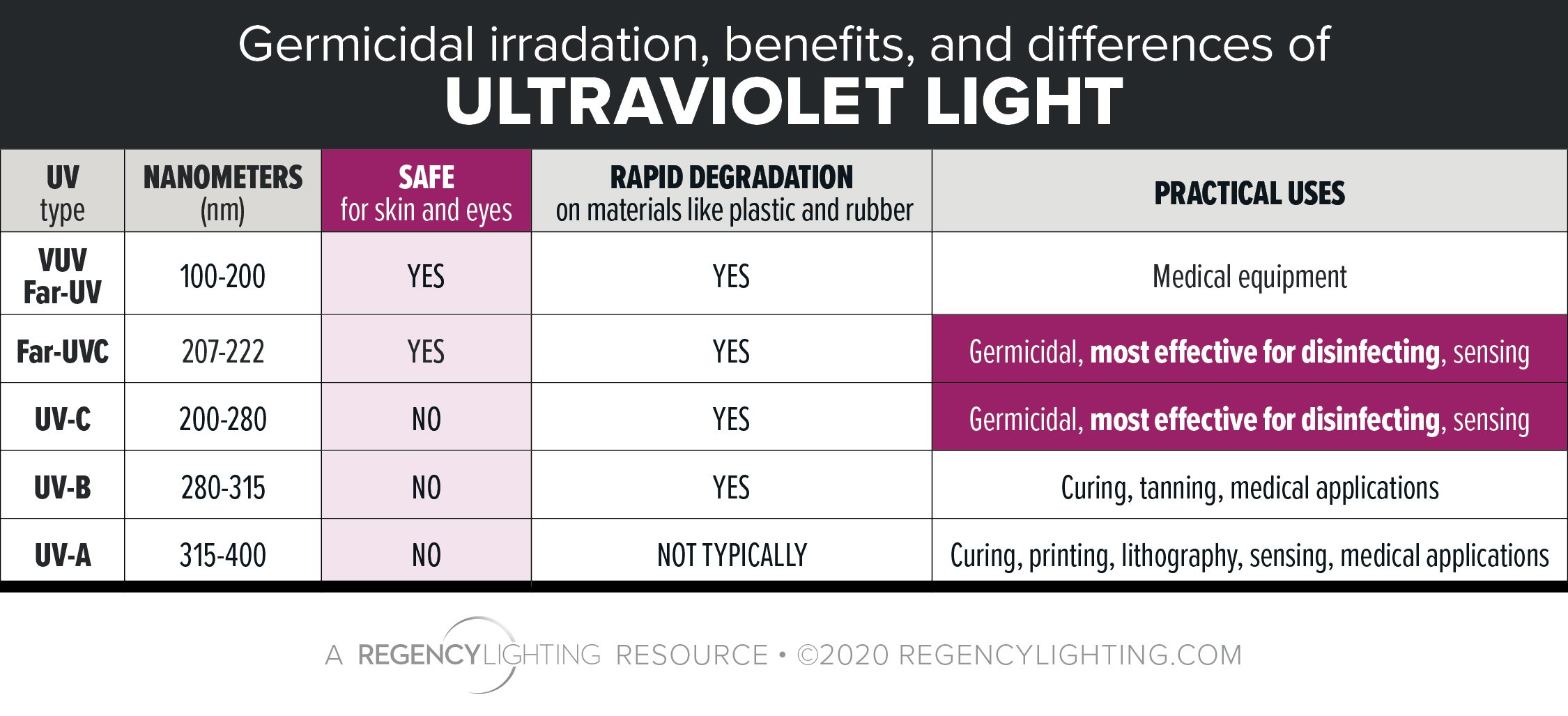1. Ultraviolet Light
Ultraviolet irradiation is a disinfection method that uses short wavelength ultraviolet (ultraviolet C or UV-C) light to kill or inactivate microorganisms by destroying nucleic acids and disrupting their DNA, leaving them unable to perform vital cellular functions. Ultraviolet lamps can produce strong enough UV-C light in circulating air or water systems to make them inhospitable environments to microorganisms such as bacteria, viruses, moulds and other pathogens. A specific wavelength of light can be used to ensure safety for skin and eyes, while ensuring that it is most harmful for viruses and bacteria (Figure 1). 
Figure 1. Table showing the effects of different wavelengths of UV light. Source: Regency Lightning.
2. Cotton for comfort and the environment
The enhanced face mask is made up of cotton. Cotton is chosen as it one of the most commonly used natural fibres worldwide. It allows the mask to be comfortable, breathable and soft for users. Its hypoallergenic qualities make it ideal for use with sensitive skin, allowing more users to be able to use the mask. Furthermore, the usage of cotton has serious benefits on the environment as it is biodegradable and environmentally-friendly (Figure 2). 
Figure 2. Picture showing the effects of usage of cotton. Source: AboutOrganicCotton.
3. Strap for adjustability and comfort
The face shield will have a larger extent of coverage compared to the current face shields being used. The usage of a strap ensures that the cap can be fitted to any head size so that it is not too tight or not too loose for users. This helps them keep the face shield on comfortably for their long working hours.